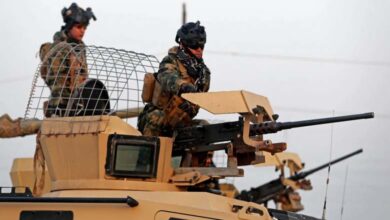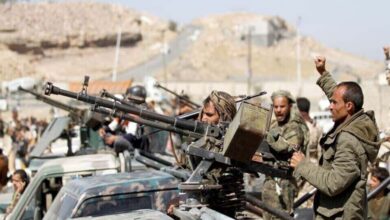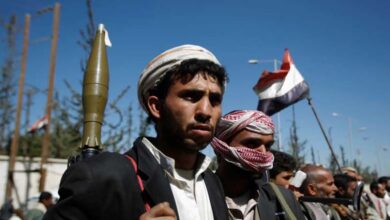Central Asia and the Gulf Cooperation Council… Convergence Amidst Global Relations Uncertainty

Central Asia and the Gulf Cooperation Council are witnessing a convergence amid the uncertainty of global relations. Following a meeting between the Gulf Cooperation Council leaders and five Central Asian republics, the situation has become hazy regarding the export of agricultural products from Ukraine and Russia, as well as disruptions in supply chains resulting from the war in Ukraine.
There has been an increased interest from Arab states in the Gulf and the world at large in the Central Asian region, as it is a producer of grains and energy. Given the strategic position of Central Asian countries and their role in trade routes, these nations have emerged as an alternative to transportation through Russia.
Seeking Gulf Investments
Central Asian countries require investments from nations like the Gulf states to develop infrastructure and necessary logistical services to enhance their trading capabilities. They aim to make the most of their strategic location and the important geopolitical opportunities that arise from it.
Tajikistan has a population of 10 million, Kyrgyzstan 8 million, and Kazakhstan 20 million. Although they lack clear markets, becoming a market encompassing 75 million people would make them more attractive. On the other hand, the Gulf states have a population of 70 million.
The Gulf Cooperation Council model is characterized by flexibility, enabling the council and its members to organize their long-term strategic objectives within the council and make necessary decisions.
Cooperation and Strengthening Relations
In July of last year, the summit of the Gulf Cooperation Council for Arab States and Central Asian countries emphasized the importance of enhancing political and strategic relations between the council states and Central Asia. They highlighted the significance of dialogue and partnership towards new horizons in various fields.
The concluding statement emphasized the importance of strengthening political and strategic relations between the parties and condemning terrorism in all its forms and manifestations. It also stressed respect for state sovereignty and non-interference in their internal affairs.
Both sides affirmed the importance of ongoing cooperation between the Gulf Cooperation Council and Central Asia in international forums and organizations such as the International Monetary Fund and the World Bank to address the economic challenges facing the world.
Gulf Relations with Central Asia are Highly Significant
Fahad Al-Shelaimi, the President of the Gulf Forum, said that Gulf relations with Central Asia are highly significant, particularly after the Gulf summit with Central Asian countries. These countries share energy resources and have geographical similarities with the Gulf states. Additionally, the vast spaces and geography of Central Asia are akin to those of the Gulf.
Al-Shelaimi added that countries like Kyrgyzstan are oil-producing countries, and they have energy projects just like the Gulf states. He further added that these countries have strong economies, and investing in them would yield substantial gains. These nations possess natural resources that have not been sufficiently tapped into, and they also serve as a source of labor closely connected with the Arabian Peninsula.
Furthermore, Al-Shelaimi stated that these countries have significant connections with the Islamic world. There are intertwined factors, with religion being the first, followed by economic factors and economic similarity. There is a need for capital investment, and the fourth point is the Russian space, which, although affiliated with the Soviet Union, is distant from Russian exploitation. These spaces could also serve as transit routes to Europe.
Consequently, the Gulf Cooperation Council must establish good relations that consider mutual interests. Additionally, Central Asian countries play a role in the political realm as neighbors of Iran, given the current political geography, thus serving as a mediator for future cooperation with these countries to facilitate Iran’s entry into the international system.












